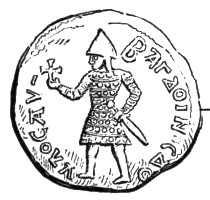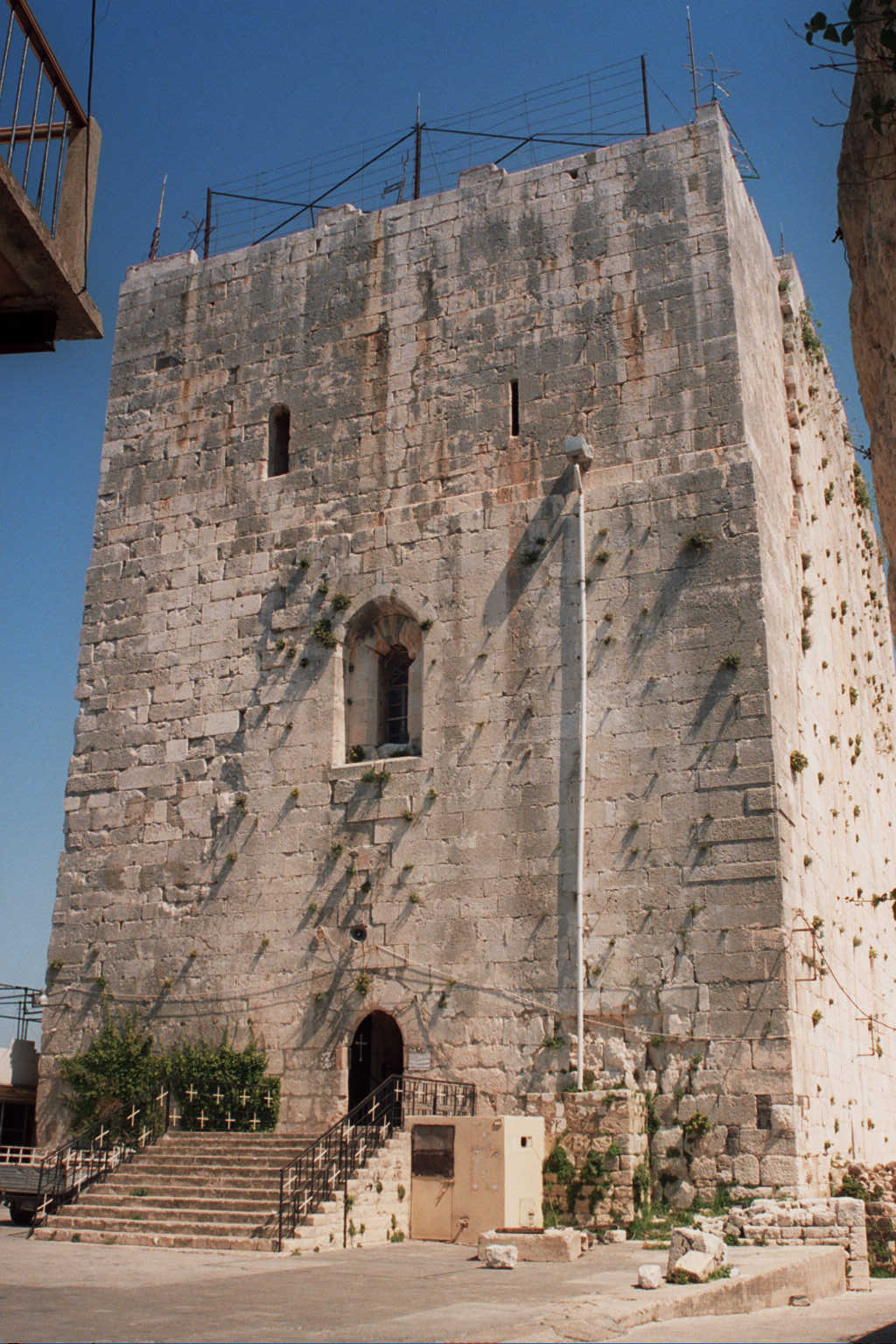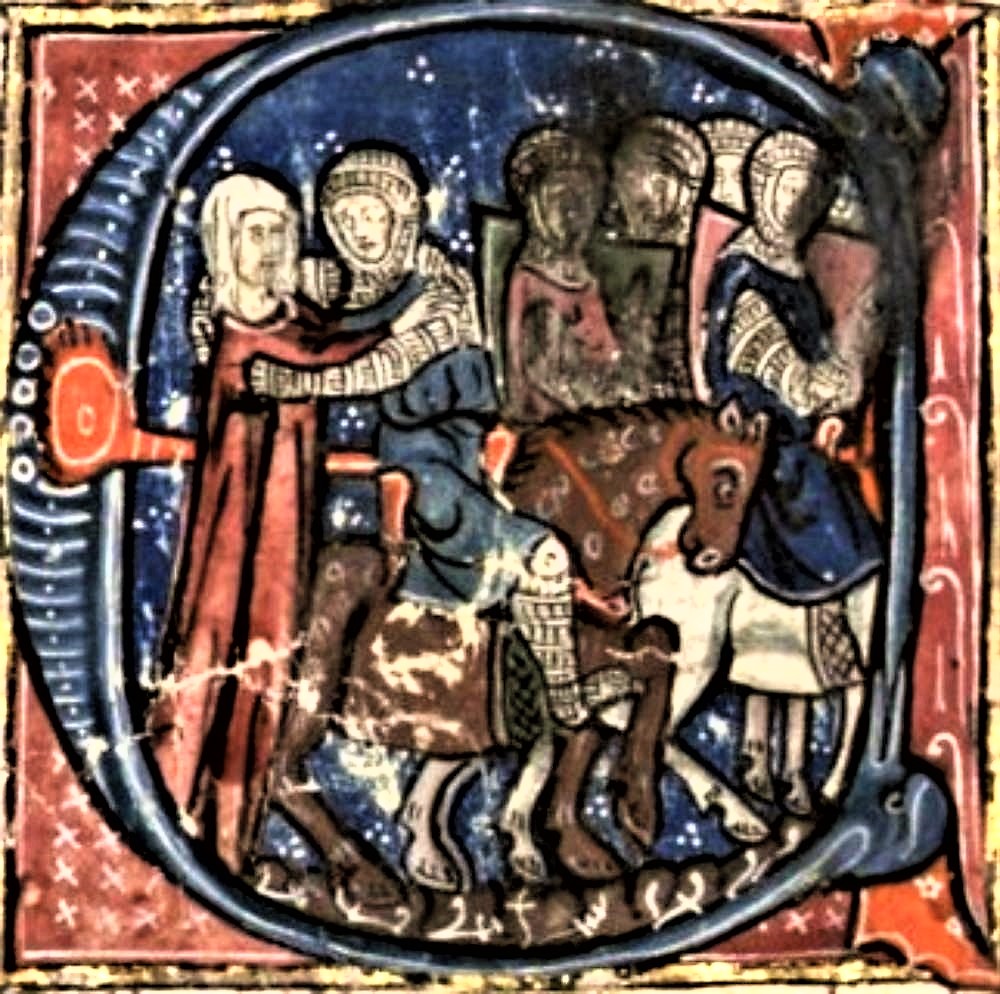|
Bursuq II
Bursuq ibn Bursuq, also known as Bursuk ibn Bursuk (died in 1116 or 1117), was the emir (or lord) of Hamadan. General He was the most notable son of Bursuq the Elder. Bursuq ibn Bursuq was a Turkic general in the service of the Seljuq Sultan Muhammad I Tapar. As emir of Hamadan, he participated in the military campaigns against the crusader states from the 1110s. The Artuqid ruler of Mardin Ilghazi defeated the supreme commander of the Sultan's army, Aqsunqur al-Bursuqi, in late 1114. Muhammad I soon replaced Aqsunqur with Bursuq, also charging him with the direction of the ''jihad'' (or holy war) against the crusaders (or Franks). After gathering new troops in Mosul and the Jazira, Bursuq invaded Syria in early 1115. After besieging Edessa for a short time, he marched towards Aleppo where he wanted to establish his base of operation. The eunuch atabeg of Aleppo, Lulu, sent envoys to Ilghazi, and the atabeg of Damascus, Toghtekin, seeking their assistance against Bursuq. Ilghaz ... [...More Info...] [...Related Items...] OR: [Wikipedia] [Google] [Baidu] |
Emir
Emir (; ar, أمير ' ), sometimes transliterated amir, amier, or ameer, is a word of Arabic origin that can refer to a male monarch, aristocrat, holder of high-ranking military or political office, or other person possessing actual or ceremonial authority. The title has a long history of use in the Arab World, East Africa, West Africa, Central Asia, and the Indian subcontinent. In the modern era, when used as a formal monarchical title, it is roughly synonymous with "prince", applicable both to a son of a hereditary monarch, and to a reigning monarch of a sovereign principality, namely an emirate. The feminine form is emira ( '), a cognate for "princess". Prior to its use as a monarchical title, the term "emir" was historically used to denote a "commander", "general", or "leader" (for example, Amir al-Mu'min). In contemporary usage, "emir" is also sometimes used as either an honorary or formal title for the head of an Islamic, or Arab (regardless of religion) organisation ... [...More Info...] [...Related Items...] OR: [Wikipedia] [Google] [Baidu] |
Lu'lu' Al-Yaya
Luʾluʾ al-Yaya, also called al-Bābā or al-Khādim ("the Eunuch"), was the regent of the Seljuk sultanate of Aleppo from AD 1113 ( AH 507) until his assassination in 1117 (510). He was the ''atabeg'' (father-lord) of the underage sultans. Previously, he had been a eunuch in the service of Aqsunqur al-Bursuqī, the ''atabeg'' of Mosul. According to Ibn al-Athīr, Luʾluʾ took charge of affairs in Aleppo after the death of Sultan Riḍwān in 1113, since his son, Alp Arslān al-Akhras, was only sixteen years old. In 1114, Alp Arslān was murdered in his own palace by his ''mamlūk''s at the instigation of Luʾluʾ because the young sultan had sought the help of Ṭughtakīn, ruler of Damascus, to establish his personal rule. Luʾluʾ then raised his six-year-old brother, Sulṭān Shāh ibn Riḍwān, to the throne and continued to hold the regency. In an effort to solidify his rule, he founded the first '' khānaqāh'' ( Ṣūfī monastery) in Aleppo, but this generated strong ... [...More Info...] [...Related Items...] OR: [Wikipedia] [Google] [Baidu] |
11th-century Turkic People
The 11th century is the period from 1001 ( MI) through 1100 ( MC) in accordance with the Julian calendar, and the 1st century of the 2nd millennium. In the history of Europe, this period is considered the early part of the High Middle Ages. There was, after a brief ascendancy, a sudden decline of Byzantine power and a rise of Norman domination over much of Europe, along with the prominent role in Europe of notably influential popes. Christendom experienced a formal schism in this century which had been developing over previous centuries between the Latin West and Byzantine East, causing a split in its two largest denominations to this day: Roman Catholicism and Eastern Orthodoxy. In Song dynasty China and the classical Islamic world, this century marked the high point for both classical Chinese civilization, science and technology, and classical Islamic science, philosophy, technology and literature. Rival political factions at the Song dynasty court created strife amongst t ... [...More Info...] [...Related Items...] OR: [Wikipedia] [Google] [Baidu] |
Turkic Rulers
Turkic may refer to: * anything related to the country of Turkey * Turkic languages, a language family of at least thirty-five documented languages ** Turkic alphabets (other) ** Turkish language, the most widely spoken Turkic language * Turkic peoples, a collection of ethno-linguistic groups ** Turkic migration, the expansion of the Turkic tribes and Turkic languages, mainly between the 6th and 11th centuries ** Turkic mythology ** Turkic nationalism (other) ** Turkic tribal confederations See also * * Turk (other) * Turki (other) * Turkish (other) * Turkiye (other) * Turkey (other) Turkey is a country in Asia and Europe. Turkey may also refer to: Birds * Turkey (bird), the genus ''Meleagris'', including several species of large birds native to North America and Central America **Ocellated turkey, native to the Yucatán ** ... * List of Turkic dynasties and countries {{disambiguation Language and nationality ... [...More Info...] [...Related Items...] OR: [Wikipedia] [Google] [Baidu] |
Muslims Of The Crusades
Muslims ( ar, المسلمون, , ) are people who adhere to Islam, a monotheistic religion belonging to the Abrahamic tradition. They consider the Quran, the foundational religious text of Islam, to be the verbatim word of the God of Abraham (or ''Allah'') as it was revealed to Muhammad, the main Islamic prophet. The majority of Muslims also follow the teachings and practices of Muhammad (''sunnah'') as recorded in traditional accounts (''hadith''). With an estimated population of almost 1.9 billion followers as of 2020 year estimation, Muslims comprise more than 24.9% of the world's total population. In descending order, the percentage of people who identify as Muslims on each continental landmass stands at: 45% of Africa, 25% of Asia and Oceania (collectively), 6% of Europe, and 1% of the Americas. Additionally, in subdivided geographical regions, the figure stands at: 91% of the Middle East–North Africa, 90% of Central Asia, 65% of the Caucasus, 42% of Southeast Asia, ... [...More Info...] [...Related Items...] OR: [Wikipedia] [Google] [Baidu] |
Battle Of Tell Danith
The Battle of Sarmin, also known as the Battle of Tell Danith, took place on September 14, 1115 with Roger of Salerno's Crusader army surprising and routing the Seljuk Turkish army of Bursuq ibn Bursuq of Hamadan. It is also known as the First Battle of Tell Danith, distinguishing it from the Battle of Hab of 1119, the Second Battle of Tell Danith. Background In November 1114, a severe earthquake struck the Principality of Antioch, damaging many of its castles. The following spring, while supervising the repair of his strongholds, Prince Roger heard rumors of a Turkish invasion. Since 1111, the Seljuk sultan Muhammad I Tapar had directed a series of attacks on Antioch and the County of Edessa, which were both established in 1098 by Frankish crusading lords and their followers. In 1115, the Sultan sent Bursuq against Antioch. Jealous that their authority would be diminished if the Sultan's forces proved victorious, several Syrian Muslim princes allied themselves with the Latin ... [...More Info...] [...Related Items...] OR: [Wikipedia] [Google] [Baidu] |
Baldwin II Of Edessa
Baldwin II, also known as Baldwin of Bourcq or Bourg (; – 21August 1131), was Count of Edessa from 1100 to 1118, and King of Jerusalem from 1118 until his death. He accompanied his cousins Godfrey of Bouillon and Baldwin of Boulogne to the Holy Land during the First Crusade. He succeeded Baldwin of Boulogne as the second count of Edessa when he left the county for Jerusalem following his brother's death. He was captured at the Battle of Harran in 1104. He was held first by Sökmen of Mardin, then by Jikirmish of Mosul, and finally by Jawali Saqawa. During his captivity, Tancred, the Crusader ruler of the Principality of Antioch, and Tancred's cousin, Richard of Salerno, governed Edessa as Baldwin's regents. Baldwin was ransomed by his cousin, Joscelin of Courtenay, lord of Turbessel, in the summer of 1108. Tancred attempted to retain Edessa, but Bernard of Valence, the Latin patriarch of Antioch, persuaded him to restore the county to Baldwin. Baldwin allied with Jawali, ... [...More Info...] [...Related Items...] OR: [Wikipedia] [Google] [Baidu] |
Pons Of Tripoli
Pons ( 1098 – 25 March 1137) was count of Tripoli from 1112 to 1137. He was a minor when his father, Bertrand, died in 1112. He swore fealty to the Byzantine Emperor Alexios I Komnenos in the presence of a Byzantine embassy. His advisors sent him to Antioch to be educated in the court of Tancred of Antioch, ending the hostilities between the two crusader states. Tancred granted four important fortresses to Pons in the Principality of Antioch. Since Pons held his inherited lands in fief of the kings of Jerusalem, Tancred's grant strengthened the autonomy of the County of Tripoli. On his deathbed, Tancred also arranged the marriage of his wife, Cecile of France, to Pons. Pons closely cooperated with Tancred's successor, Roger of Salerno, against the Muslim rulers in the 1110s. He refused obedience to Baldwin II of Jerusalem in early 1122, but their vassals soon mediated a reconciliation between the two rulers. Pons was one of the supreme commanders of the crusader troops during the ... [...More Info...] [...Related Items...] OR: [Wikipedia] [Google] [Baidu] |
Baldwin I Of Jerusalem
Baldwin I, also known as Baldwin of Boulogne (1060s – 2April 1118), was the first count of Edessa from 1098 to 1100, and king of Jerusalem from 1100 to his death in 1118. He was the youngest son of Eustace II, Count of Boulogne, and Ida of Lorraine and married a Norman noblewoman, Godehilde of Tosny. He received the County of Verdun in 1096, but he soon joined the crusader army of his brother Godfrey of Bouillon and became one of the most successful commanders of the First Crusade. While the main crusader army was marching across Asia Minor in 1097, Baldwin and the Norman Tancred launched a separate expedition against Cilicia. Tancred tried to capture Tarsus in September, but Baldwin forced him to leave it, which gave rise to an enduring conflict between them. Baldwin seized important fortresses in the lands to the west of the Euphrates with the assistance of local Armenians. Thoros of Edessa invited him to come to Edessa to fight against the Seljuks. Taking advantage of a rio ... [...More Info...] [...Related Items...] OR: [Wikipedia] [Google] [Baidu] |
Principality Of Antioch
The Principality of Antioch was one of the crusader states created during the First Crusade which included parts of modern-day Turkey and Syria. The principality was much smaller than the County of Edessa or the Kingdom of Jerusalem. It extended around the northeastern edge of the Mediterranean, bordering the County of Tripoli to the south, Edessa to the east, and the Byzantine Empire or the Kingdom of Armenia to the northwest, depending on the date. It had roughly 20,000 inhabitants in the 12th century, most of whom were Armenians and Greek Orthodox Christians, with a few Muslims outside the city itself. Most of the crusaders who settled there were of Norman origin, notably from the Norman Kingdom of southern Italy, as were the first rulers of the principality, who surrounded themselves with loyal subjects. Few of the inhabitants apart from the Crusaders were Roman Catholic even though the city was under the jurisdiction of the Latin Patriarchate of Antioch, established in 1 ... [...More Info...] [...Related Items...] OR: [Wikipedia] [Google] [Baidu] |
Roger Of Salerno
Roger of Salerno (or Roger of the Principate) (died June 28, 1119) was regent of the Principality of Antioch from 1112 to 1119. He was the son of Richard of the Principate and the 2nd cousin of Tancred, Prince of Galilee, both participants on the First Crusade. He became regent of Antioch when Tancred died in 1112; the actual prince, Bohemund II, was still a child. Like Tancred, Roger was almost constantly at war with the nearby Muslim states such as Aleppo. In 1114 there was an earthquake that destroyed many of the fortifications of the principality, and Roger took great care to rebuild them, especially those near the frontier. Roger defeated Bursuq ibn Bursuq in 1115 at the Battle of Tell Danith. With Joscelin I of Edessa, Roger put enough military pressure on Aleppo that the city allied with Ortoqid emir Ilghazi in 1118. Ilghazi invaded the Principality in 1119, and despite the urging of the Patriarch, Roger did not wait for reinforcements from Jerusalem or Tripoli. At the ... [...More Info...] [...Related Items...] OR: [Wikipedia] [Google] [Baidu] |
Toghtekin
Toghtekin or Tughtekin (Modern tr, Tuğtekin; Arabicised epithet: ''Zahir ad-Din Tughtikin''; died February 12, 1128), also spelled Tughtegin, was a Turkic military leader, who was ''atabeg'' of Damascus from 1104 to 1128. He was the founder of the Burid dynasty of Damascus. Biography Toghtekin was a junior officer to Tutush I, Seljuq emir of Damascus and Syria. After the former's death in 1095, civil war erupted, and Toghtekin supported Tutush's son Duqaq as emir of the city against Ridwan, the emir of Aleppo. In the chaotic years which ensued Toghtekin was sent to reconquer the town of Jebleh, which had rebelled against the ''qadi'' of Tripoli, but he was unable to accomplish his task. On October 21, 1097, a Crusader army began the siege of Antioch. The local emir, Yaghi-Siyan, though nominally under Ridwan's suzerainty, appealed to Duqaq to send an armed force to their rescue. Duqaq sent Toghtekin, but on December 31, 1097, he was defeated by Bohemund of Taranto and Rob ... [...More Info...] [...Related Items...] OR: [Wikipedia] [Google] [Baidu] |
.jpg)





